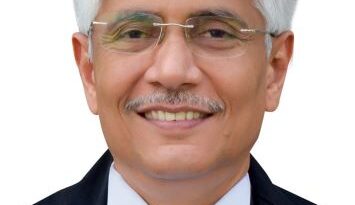On Plea Against BJP MP’s Remark Against Judiciary, Supreme Court Says: “You Don’t Need Our Permission”
(Judicial Quest News Network)
New Delhi, April 21, 2025 — In a significant courtroom exchange today, the Supreme Court of India addressed a plea urging it to initiate criminal contempt proceedings against BJP MP Nishikant Dubey for his sharp and controversial remarks targeting the judiciary and Chief Justice of India (CJI) Sanjiv Khanna.
The matter came up before a division bench comprising Justice B.R. Gavai and Justice Augustine George Masih, who clarified that the petitioner did not need the court’s prior nod to file a criminal contempt case. However, the bench emphasized the mandatory requirement of consent from the Attorney General (AG) of India, who is the Centre’s top legal officer.
“So, you file it for filing. You don’t need our permission. You will need sanction from AG,” remarked Justice Gavai during the hearing.
The Controversial Remarks
The controversy stems from recent incendiary comments made by Dubey, in which he launched a scathing attack on the Supreme Court over its verdicts in the Tamil Nadu Governor case and the Waqf Board ruling. In a public outburst, Dubey questioned the judiciary’s role in law-making, suggesting that if judges continued legislating, “Parliament and legislative assemblies might as well shut down.”
His remarks escalated further when he accused CJI Sanjiv Khanna of being responsible for “civil wars” in the country, directly linking the judiciary’s decisions to recent communal tensions and violence in Bengal.
Petitions and Legal Responses
In response, to a petition, the Apex Court has orally asked lawyer to formally write to Attorney General R. Venkataramani, seeking his consent to initiate criminal contempt proceedings against Dubey. In his letter,
“These public statements are not only grossly scandalous and misleading, but are also aimed at undermining the authority and dignity of the Supreme Court… Recklessly attributing national unrest to the Chief Justice scandalizes the highest judicial office in the country.”
The letter warns of the potential consequences such remarks could have in inciting communal tensions and fostering distrust in judicial impartiality.
Simultaneously, Advocate Narendra Mishra has urged the Supreme Court and the CJI to take Suo motu cognizance of Dubey’s remarks. In his communication to the apex court, Mishra asserted:
“These statements are a deliberate attempt to intimidate the judiciary, incite public disorder, and delegitimize the very institution entrusted with upholding the Constitution.”
What’s Next?
While the court has refrained from taking immediate action, the developments have sparked wider concerns about political interference in judicial affairs and the limits of free speech for elected representatives. The focus now shifts to the Attorney General, whose consent is pivotal for moving forward with contempt proceedings under the Contempt of Courts Act, 1971.
Whether this escalates into a full-blown legal battle or simmers as a political flashpoint, the episode underscores the fragile balance between the judiciary and the legislature — and the consequences when that balance is disrupted.



